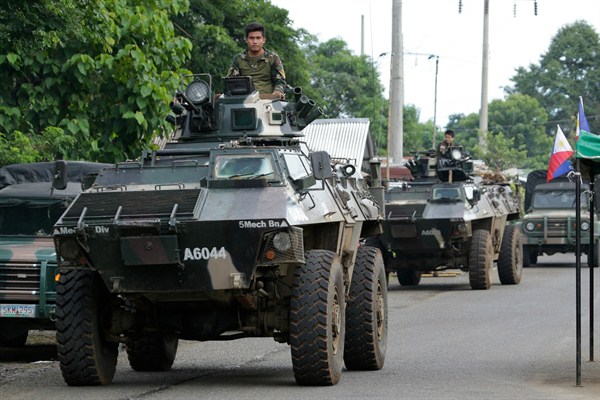Today the grueling battles to expel the self-styled Islamic State from Iraq and Syria drag on, but even when they are over it will not be the end of the violent extremist movement. There are still willing recruits for the Islamic State and plenty of anger, disillusionment and alienation that it can exploit. Unfortunately, it has established its global “brand.” Even as it is being driven from its homeland, it seems to be plotting its next strategic moves.
At this point, the Islamic State’s most effective foray outside Iraq and Syria is in Afghanistan, where it has joined the Taliban’s long conflict with the elected government in Kabul. Afghan officials estimate that the Islamic State has around 2,000 fighters in the eastern part of the country, many of them foreigners. A few weeks ago, there was a major attack in northern Afghanistan by a force claiming to include both Taliban and Islamic State militants. And the group has claimed credit for suicide attacks in Kabul and Herat.
While the Islamic State’s ultimate goal in Afghanistan may be to supplant the Taliban, it is unlikely to do so. That nation is historically resistant to outside influence. Local forces, whether the mujahedeen who fought the Soviets in the 1980s or the Taliban, are adept at using foreign fighters and then discarding or peripheralizing them when they are no longer needed. Even al-Qaida under Osama bin Laden played a limited political role in Afghanistan after the Taliban seized power. So far there are few signs that large numbers of Afghan militants are choosing the Islamic State over the Taliban. This suggests that the group may influence the course of the Afghanistan conflict but not control its outcome.

